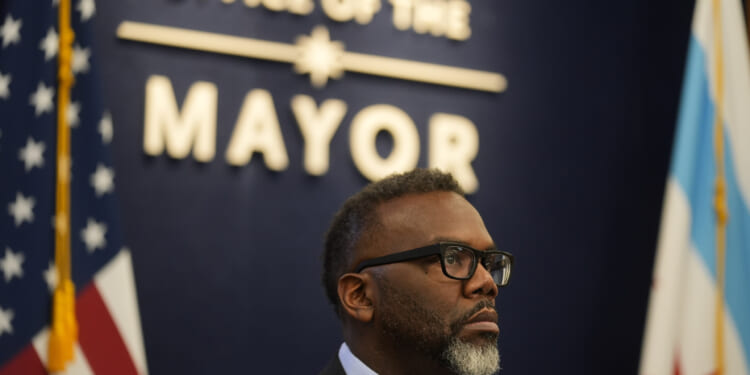Chicago has thousands of job vacancies that receive city funding, leaving taxpayers to pay for empty positions that spur massive overtime costs.
Chicago’s budget is bloated not only because of what it spends on current employees, but because of the thousands of unfilled jobs it continues to fund.
The city faces a looming fiscal cliff, with a projected corporate fund deficit of $1.15 billion for 2026. To help stabilize its finances, the city should eliminate long-standing job vacancies and prioritize filling critical public safety positions.
Personnel costs account for 60.94% of corporate fund expenditures. When job positions are vacant for long periods, it is worth taking a look to see if they are really needed.
In 2025, Chicago cut 744 vacant positions, helping save $247.6 million in “operational efficiencies.” Despite this, the city in July still had 3,848 jobs unfilled, 2,081 of which were supported by the corporate fund.
While leaving roles unfilled may sound cost-effective by having fewer people on the payroll, departments still receive funding for the jobs. Instead of returning the money, departments can redirect it to other uses, which reduces efficient or transparent use of tax revenue.
If the city were to cut half of its long-standing corporate fund vacancies, it would save about $105 million.
Some of these unfilled positions cost the city even more because departments are covering the vacancies by having current staff work overtime. The city is obligated to pay each worker 1.5 times their hourly rate for overtime, leading to increased costs on taxpayers and stretching workers thin. It is important, especially for essential service and critical public safety roles, to hire the right number of people so existing workers are not overtired.
The Chicago Police Department has one-third of all the vacancies at 1,358 as of October 2025. There are currently 11,519 CPD members, down by 1,834 from its peak in early 2019.
While the number of officers has declined, overtime costs have doubled – a clear signal the city needs more officers. Chicago spent $510.9 million on overtime in 2024, of which $278.3 million went to the police – nearly triple what was earmarked for police overtime that year.
Although CPD is the worst offender, other departments also rack up high overtime costs.
The fire department spent $89.7 million on overtime in 2024. The Office of Public Safety Administration, which was created in 2019 to combine police and fire department administration to cut costs and increase efficiency, has spent $2 million on overtime, failing to realize promised savings. The Department of Streets and Sanitation spent $24.7 million, and the list goes on.
Long-standing job vacancies invite inefficiency and reduce transparency in city spending. Regularly reviewing staffing needs and trimming unnecessary vacancies would make the budget more transparent and ensure funds are used as intended.
Addressing job vacancies alone won’t solve Chicago’s financial crisis. It will require broader reforms, such as pension reform, reducing spending, restraining new debt and increasing economic growth. These recommendations are detailed in the Illinois Policy Institute’s report, Chicago Forward 2026.










